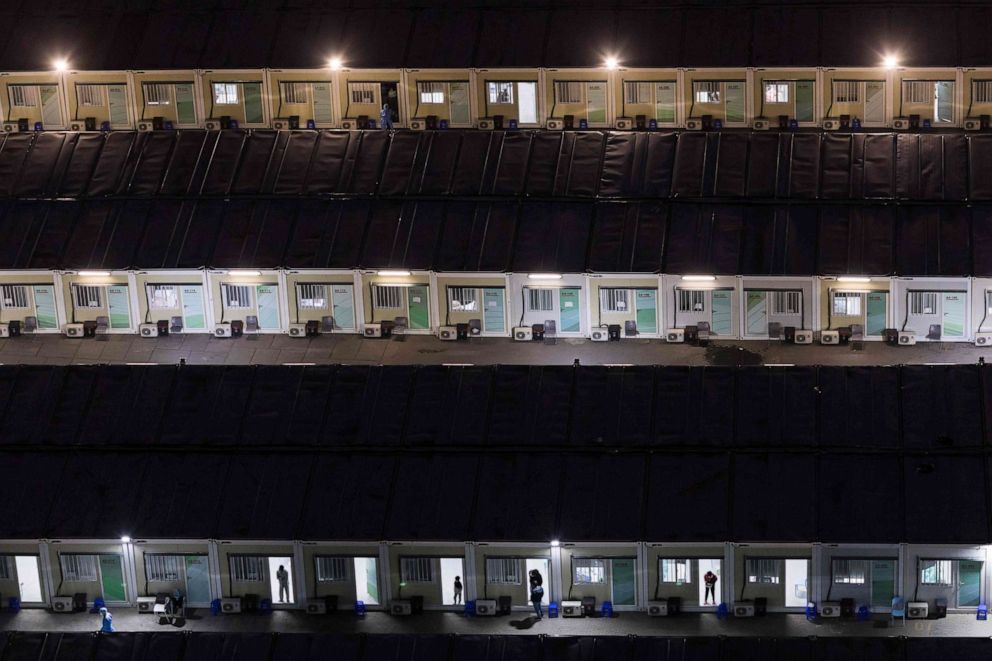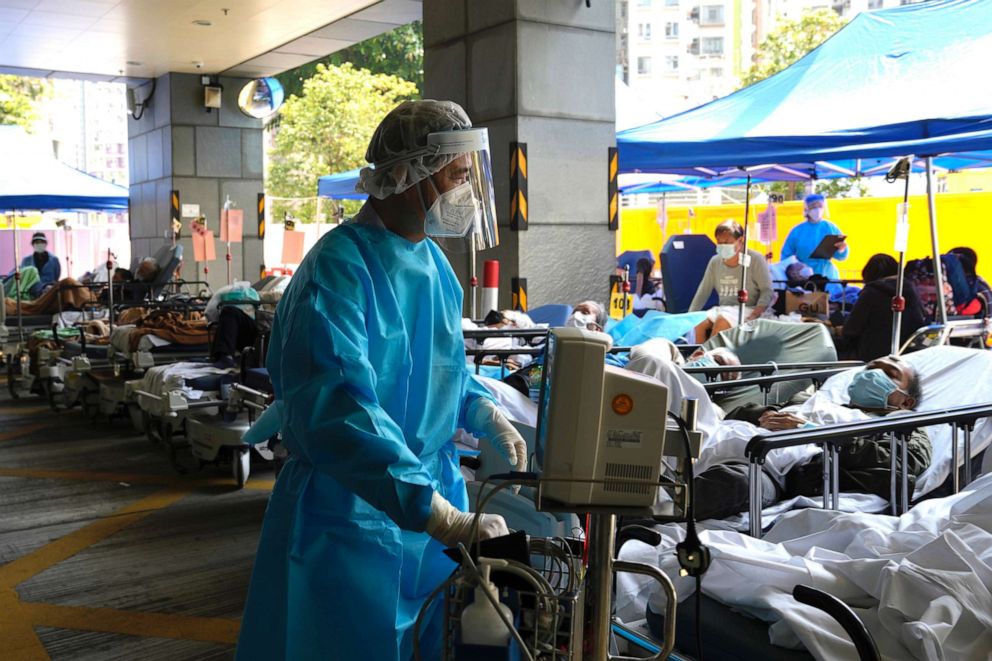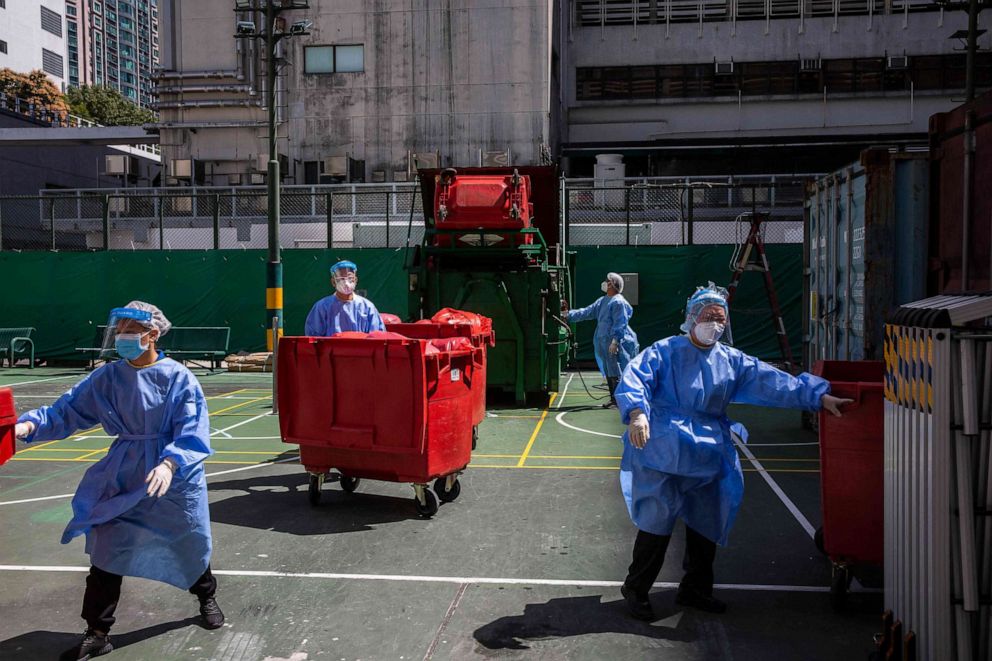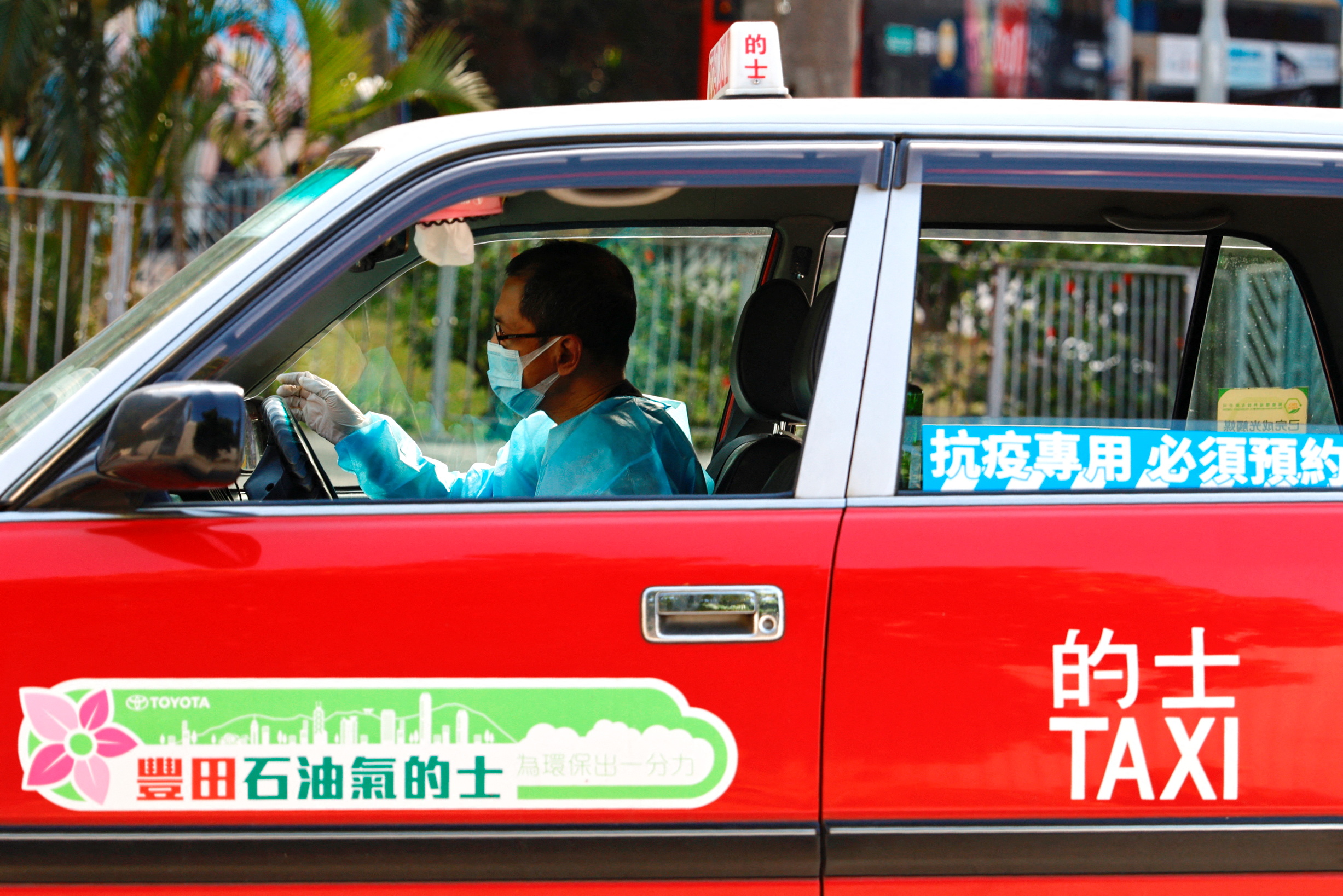Hong Kong doubles down on 'Zero COVID' policy, as death rate soars to world’s highest
More than 3,200 people have died in Hong Kong’s current COVID-19 wave.
HONG KONG -- As much the rest of the world learns to live with COVID-19, the highly infectious omicron variant has finally broken through Hong Kong’s once-lauded defenses.
The city was a poster child for COVID control, after going long stretches of last year without a single reported infection. However, its death rate is now the highest in the developed world.
About 3,231 people have died as of Friday in Hong Kong’s current wave, which began at the start of this year, compared with just 213 reported deaths in the first two years of the pandemic.
China, which has exerted more direct control in the semi-autonomous territory since protests swept the city in 2019, has made it clear that Hong Kong authorities must do whatever it takes to contain the virus. China is the last major country relentlessly pursuing a "Zero COVID" policy.

Chinese President Xi Jinping last month placed Hong Kong authorities on notice, saying, “The Hong Kong SAR government must mobilize all the forces and resources that can be mobilized, and take all necessary measures to ensure the safety and health of Hong Kong citizens and the overall stability of Hong Kong society.”
Hong Kong’s leader Carrie Lam has welcomed mainland China’s direct help, including sending health experts and medical workers, and constructing make-shift isolation facilities.
Although there has been an abundance of vaccines in Hong Kong since early 2021, just 30% of Hong Kong residents over 80 were fully vaccinated when this fifth wave began at the start of the year. Hong Kong’s unvaccinated elderly have been the vast majority of recent deaths.
Professor Ivan Hung, a frontline doctor and medical advisor of the Hong Kong government, said it was a “missed opportunity” not to get enough elderly people vaccinated.
“Now there are a lot of elderly people trying to rush in and get vaccinated. But unfortunately, it's far too late, especially in the elderly homes. So unfortunately, there will be some casualties within this wave,” Professor Hung said.

Mixed messaging from the government has also caused confusion, prompting panicked shoppers to strip bare supermarket shelves.
Hong Kong has some of the toughest social distancing and border controls in the world, with flights still banned from eight countries, including the United States.
Local tycoon Allan Zeman has called Hong Kong home for 50 years. Under the current restrictions, Zeman’s famous Lan Kwai Fong district, where he is a major property developer, looks like a ghost town.
“It's kind of heartbreaking,” Zeman said, “Hong Kong was always a city of hustle and bustle.”
Hong Kong’s hardline approach also appears to be fueling an exodus from the Asian financial hub. In February, a record of about 71,000 people departed Hong Kong for the month.

“It's a lot of bankers, a lot of financial industry people. Obviously, that affects every business because if tourists aren't coming, there’s limited shopping, there's limited dining. This brain drain has really caused a real headache, a real problem,” Zeman said.
Zeman, who is also an adviser to the Hong Kong and Beijing governments, wants to see the city earn back its reputation as a gateway to the East and West. The businessman suggested that authorities reopen the international borders.
“What I would suggest to the government is that we look at the internationalism of Hong Kong and do whatever we can,” Zeman said.
But there is no clear sign that Hong Kong will veer from its no-tolerance approach, and whether Beijing would allow it to change tack.

China is also battling a surge of cases at the moment, with daily infections at a two-year high. The country’s aggressive measures allowed it to host the Winter Games without an outbreak.
However, experts point out that China will also need an eventual road map out of isolation.
“Unfortunately, every single city or county has to face an exit wave some time down the line. The only thing we could do is to get as many people vaccinated as possible.”
However, that ultimate "exit wave" for Hong Kong and China may have to wait.
Xi is scheduled to visit Hong Kong in July for the 25th anniversary of the city’s handover from British rule. Xi will want his first trip since the 2019 protests and first outside mainland China since the beginning of the pandemic to go as smoothly as possible.




